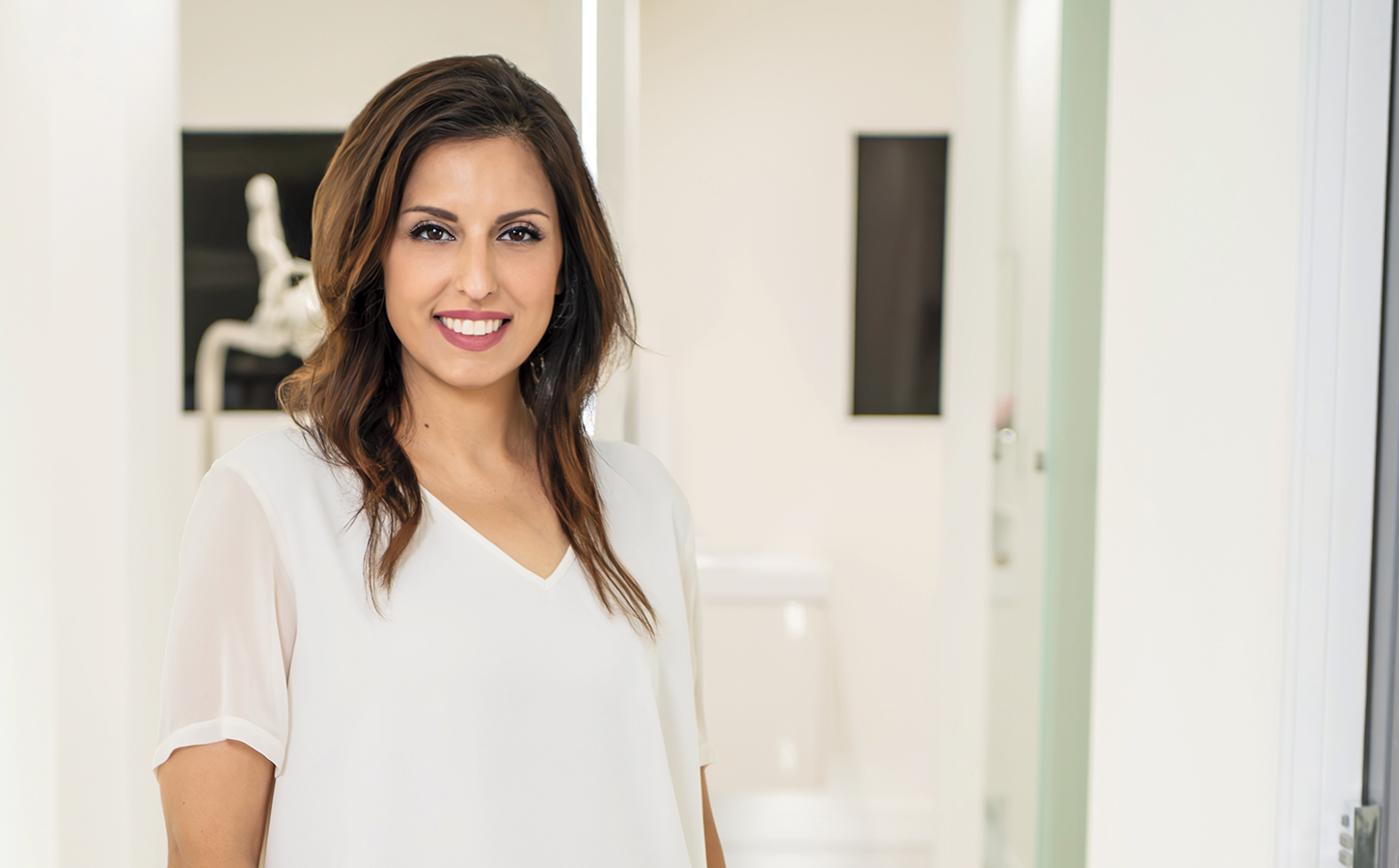Bita Davoodian, DDS

- Owner
Beach Dental Club
- Address
1959 Kingsdale Ave., Redondo Beach
- Phone
310-793-1000
- Website
- Special Section
Highlights
- Digital & Laser Dentistry
- Preventive Care
- Precise & Pain-minimized Procedures
- Dental & Systemic Health
At Beach Dental Club, Bita Davoodian, DDS, offers the latest in preventive and comprehensive dental care, including Invisalign and whitening, veneers and crowns, implants and dentures, laser dentistry and 3D scanning for digital modeling with no radiation. Dr. Davoodian has worked in the dental field for 28 years and opened her private practice in 2012. She earned her Doctor of Dental Surgery degree from the University of the Pacific, Arthur A. Dugoni School of Dentistry in San Francisco and served as a clinical restorative instructor at the UCLA School of Dentistry for about 12 years
Tell us about Beach Dental Club.
My practice is modern and patient-centered, offering preventive, restorative and cosmetic dentistry. We emphasize advanced technology like 3D imaging and digital diagnostics. I integrate cutting-edge tools—such as the iTero 3D intraoral scanner, intraoral cameras, cone beam CT imaging and 3D facial scanning—to improve accuracy and patient experience.
How do you define your leadership style?
As a woman in dentistry, I define my leadership style as collaborative, compassionate and purpose-driven. I believe leadership isn’t about hierarchy; it’s about inspiring trust, fostering growth and elevating others around you. In a profession that’s both highly technical and deeply personal, I lead with empathy and clarity—whether I’m guiding my team, mentoring students or supporting patients in making informed decisions about their health.
Being a woman in a historically male-dominated field has taught me the value of resilience, preparation and presence. I strive to lead by example—bringing not only clinical excellence to the chair but also emotional intelligence, patience and humility to every interaction. My approach prioritizes open communication, continuous learning and creating a practice culture where every team member feels seen, heard and empowered to contribute meaningfully. Leadership, to me, is not a title; it’s a responsibility to advocate for integrity, innovation and inclusivity in dentistry.
Is there a myth you’d like to rewrite about dentistry?
Dentistry isn’t just about drills and diagnostics; it’s about people. Patients come to us anxious, sometimes in pain, often with fears rooted in past experiences. I’ve found that my empathy, active listening and ability to connect with them on a human level have helped me build trust and loyalty—two things that directly impact the success of any practice. It’s these so-called “soft” skills—clear communication, collaboration, adaptability—that have helped me build a thriving, patient-centered business.
What skills are important to build trust?
Dentistry is an intensely personal field. It’s not just technical proficiency that builds trust with patients—it’s how we communicate, reassure and connect. The ability to read a patient’s nonverbal cues, to calm their fears and to foster a welcoming, respectful environment … these are leadership qualities just as vital as treatment planning or practice management.
What strategies have you found most effective in growing your business?
I use a few key strategies that blend clinical excellence with community connection: building genuine patient relationships, investing in modern technology and creating a welcoming practice culture, from the front desk to the operatory.
What’s the most unconventional advice you’ve ever received—and followed?
“Hire for attitude, not just skill.” At first it felt risky—especially in a clinical field like dentistry, where technical competence is essential. But I followed it … and it changed everything. I started prioritizing empathy, work ethic and communication skills just as much as résumés or certifications. The result? A team that not only performs well but genuinely cares—about patients, each other and the success of the practice. Skills can be taught. But attitude? That’s what sets the tone of the entire patient experience. And it’s one of the best “unconventional” decisions I ever made.
What does “local” mean to you?
To me, “local” means community, connection and commitment. It’s more than geography. It’s about being an active, trusted part of the lives around you. In my work, being local means knowing my patients by name, understanding the rhythms and values of the neighborhood, and being there not just as a health care provider but as a neighbor, mentor and supporter. It means choosing local vendors when possible, supporting nearby schools and events and building long-term relationships—not just transactions.
Photographed by Fabien & Laura Castro





